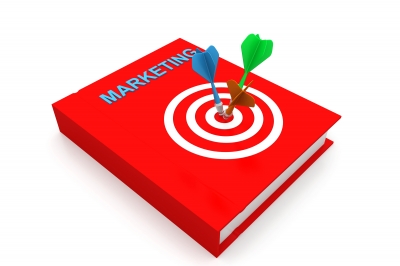Browse Blog Categories
- General (90)
- Business (94)
- Business Coaching (71)
- Business Management (97)
- Business Systems (25)
- Entrepreneur (71)
- Executive Coaching (34)
- Family Business (83)
- Leadership (99)
- Management (91)
- Marketing (16)
- Profitability (19)
- Sales (18)
- Speaking Topics (5)
- Success In Business (97)
- Team Building (41)
- Time Management (3)
Janna's Blog
Hands-on practical tips, advice, and perspectives are found in Janna's blog. Contact us for topics and questions you would like addressed in the blog.
For years the business owner did it right. She created a viable business, worked through her business plan and now, years later her hard work has paid off and it's now time t retire. What does this ambiguous word RETIRE actually mean, and how does it impact a business and the life of the original owner? Not being too many years away from the typical age of retirement myself, I have read many articles on both what to do and what it takes to retire. Each author provides a personal point of view from either a financial perspective (what can you afford), or from a times perspective (what do you do now to prepare). For some business owners, the shift sometimes never happens. They neglected to create a life outside of the business, so to stop doing what has motivated them throughout the years may create an essential spiral down of personal value. They have no identity outside of work, and to quote my son in his salutatorian speech for high school graduation: "You g to school, get a job, raise and family and die." Doesn't sound that enticing does it! Let's explore an attitude adjustment on the idea of retirement. Here are 2 topics that I challenge you t consider: 1. Wording: Change you wording from retirement to financial independence. So you are 32 and retirement isn't part of your vocabulary - I get it. Yet when I talk to almost anyone at any age, they all seek financial independence. Being financially independent can happen at any stage of life. The first ting you must do is determine what financial independence means for you and for your family. For some, it is having millions in the bank, for others it is having enough set aside that should they stop working, the money set aside would allow them to live a reasonable life style. The magic is determining what is enough. The questions of what is enough can only be answered by you, but avoidance and not planning isn't the answer, unless you want at some point in the future, to be limited by what you can d, when you can do it, and how you will do it etc. 2. Attitude: The old style of sitting in you rocker on the font porch is either gone, or should be gone - since all it will do is make you a goner. Our life has stages; childhood, teenage yeas, young adult, raising kids (or middle life), and empty nesters. Notice the concept of when you work isn't' defined at all. For the years that you want to be a contributing member of society, you will work in one way or another. The mother that works inside the home may not get paid an hourly wage, but she works her tail off. The empty nester that is mentoring a new business may not be paid in monetary dollars, but is contributing in so may other was. The question is, what are you planning to contribute at each stage of your life? What will you impact on your family, community, church and world look like? Notice in the above 2 topics I never once asked when you were going t stop your paying job and "retire". Sure there will be a time that you will cut back on the schedule you presently keep, the office hours, and the number of people that report to you, that is part of life. However, just like changing jobs, starting a new business, or going to college, each requires a plan. Therefore create your "RETIREMENT" plan and execute that plan. Your family, your church, your community and the next generation will thank you for becoming financially independent, and for choosing to give back and invest in them at a time when they needed it most. After all, isn't that what you were really looking for all along? The ability to make choices? All too often, I hear excuses for why something did not happen the way it should have. People always search for ways to absolve their guilt by blaming their issues on something else. I have found throughout my career that there are three major categories of excuses: The “It’s good enough” excuse This is one of the most common excuses. Someone will do a passable job, scraping by, but quit as soon as possible with the excuse that what they accomplished is good enough. They are not striving for an “A” or for real quality work. Merely scraping by with a “C” or adequate work is good enough. However, if you want to make your business truly exceptional, meaningful, a true world-changer, this is not acceptable. You will never get ahead with “good enough”. Would you yourself do business with just “good enough”? The “I’m new at this” excuse Along this same line, people who are new at something feel that they have a right to give themselves a bit of slack. Although there is something to be said for the learning curve, all too often it becomes an excuse to slack off your first few months. However, the opposite is true; you need to be ready from day one. Otherwise, you get trapped in a cycle where the “I’m new at this” excuse becomes a “good enough” habit. The “I didn’t plan for that” excuse We all have moments that make us go “Oops!” If you have any doubts about that, I have a board game called Leverage to show you. Even though there are some unexpected developments, you cannot simply say “Oh well.” You need a plan B, as well as a Plan C, D, & E. Be prepared for any and all eventualities, because you never know what will happen in the future. An employee may walk out on you, or there may be a sudden shortage of your product. When that happens, what will you do? Seriously think about a variety of scenarios and create plans to put in place before you need them. Ultimately, complaining about a situation does nothing productive for you or your business. What you need to do is isolate the problem and identify a solution. Don’t waste ages explaining your problems to your friends and colleagues, only to ignore their advice. Instead, get to the root of the problem, follow through with the corrective solution, and move on with your business. The art of self-correction is among one of the most important business lessons you will ever learn. You started out with a great idea, one that seemed to be desirable by a number of clients, and it paid off. You truly found what you loved to do and are able to get people to pay you for it! Congratulations. Now, how are you going to sustain your business? You may be fantastic at developing widgets, but how are you at the actual business competencies that will sustain your business over the long run? An October 2012 report on Sustainability and Leadership Competencies for Business Leaders identifies top competencies as follows: Business owners need to provide themselves with learning opportunities that will strengthen each of these core business competencies. This education can be accomplished through reading, formal training, or most effective, by utilizing a business mentor or business coach that can hold business owner accountable for actually implementing stainable changes in their company, ones that are customized to meet their company’s specific needs. However you choose to receive your small business advice and continue your education as a leader, make a plan and follow your plan to ensure you are a perpetual learning leader. An old adage goes, “Rules are meant to be broken.” In many ways, this is absolutely correct. Simply following the rules, doing the same thing over and over, won’t get you anywhere. Albert Einstein once So let’s say you’ve set up your business, and are doing fairly well. You have a steady stream of revenue, a good customer base, efficient systems in place, and everything is going great. What do you do next? Often, businesses will plateau. They will improve up to a certain point, but things won’t get better from there. Once a plateau is reached, new thinking is required if you want your business to grow-which you should. Now, you should not throw your old playbook out the window, however, change is needed, and in many cases this change is rather unconventional. You need something that sets you apart. Find that niche, and utilize it. Do something new, something different, and blow everyone away with your creativity and innovation. The Law of Consistency is the difference between motivation and discipline. However, what happens when the road gets rough, the rocks get bigger, and fatigue sets in? That’s where discipline steps in. Without discipline, motivation is useless. The Law of the Environment is where your growth happens. It can be as simple as rearranging the furniture or as complex as moving your office. If you live in confusion and chaos then make the changes necessary. If lack of organization keeps you from moving forward then get help to get organized. Learn new skills to make the change. Personal development cannot be in a small-minded environment. You need to think big and dream big. Our society creates more negative than positive messages on a daily basis. The news, the economy, and often our friends and family, will tell us all the reasons we can’t succeed but not the reasons we can succeed. It is up to you to find fresh thinking, find new things, and create your new environment. The seventh law is the Law of Design. To maximize personal growth you must intentionally develop strategies. Think - A focus on weakness will at best make you average unless you want to make it a strength. Let me give you an example. If your weakness is public speaking and you want to grow in that area, then go for it. Get a speaking coach, read books, learn how
 said, “We cannot solve our problems with the same thinking we used to create them.” Every truly great, major innovation in history has come about as a result of new thinking.
said, “We cannot solve our problems with the same thinking we used to create them.” Every truly great, major innovation in history has come about as a result of new thinking.
(Picture credit:Freeditigalphoto.com)
 Discipline is the bridge that gets you over the hump to where you want to be.
Discipline is the bridge that gets you over the hump to where you want to be.
to be a good public speaker. However if you don’t like detail (like accounting) then don’t try to get good at accounting, hire someone else to do it for you. At best, you might become a mediocre accountant.
Ready to get started
Call or contact Janna Hoiberg online to schedule a free, initial consultation.
There is no obligation and you're guaranteed to learn a few new things about your business.